- Thursday, June 12, 2025
- Stay Connected
 Abraham Lincoln
If given the truth, the people can be depended upon to meet any national crisis...
Abraham Lincoln
If given the truth, the people can be depended upon to meet any national crisis...
 Guildford news...
for Guildford people, brought to you by Guildford reporters - Guildford's own news service
Guildford news...
for Guildford people, brought to you by Guildford reporters - Guildford's own news service
Opinion: Post Coronavirus – Business As Usual Or A Chance To Change?
Published on: 29 May, 2020
Updated on: 30 May, 2020
By Sam Peters
Member of the Green Party and Extinction Rebellion
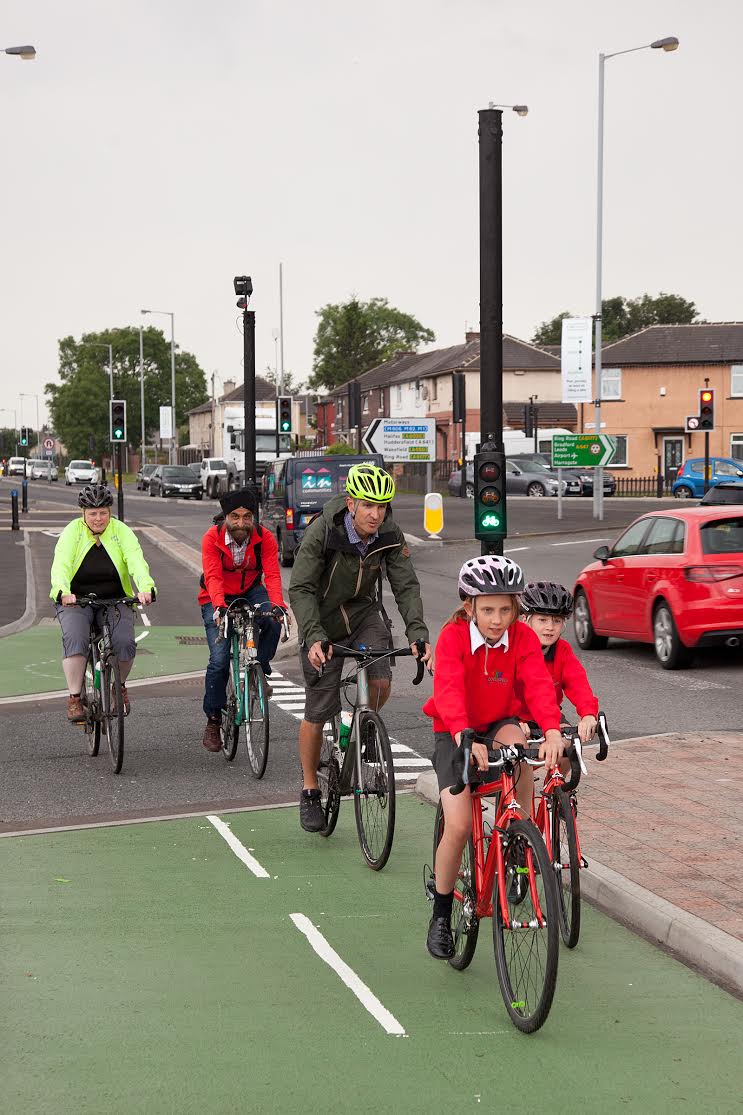
There has been a boom in cycle sales and an increase in cycle lanes around the country.
With lockdown being relaxed in England, it is easy to see the beginnings of a slow return to normality. But do we really want ‘business as usual’ back?
A you.gov poll suggests only 9% of British people hope that life post-pandemic is the same as before. Over half want to make changes both in their own lives and for the country as a whole.
Alongside the terrible impacts of this virus, many have seen the potential to create a better future. Air quality has improved enormously, with some local areas reducing air pollution by nearly two-thirds from previous illegally high levels.
Wildlife has flourished in urban and rural spaces alike; communities have come together to support the most vulnerable; home-cooking has had an unprecedented revival; millions of workers have had more time with their families.
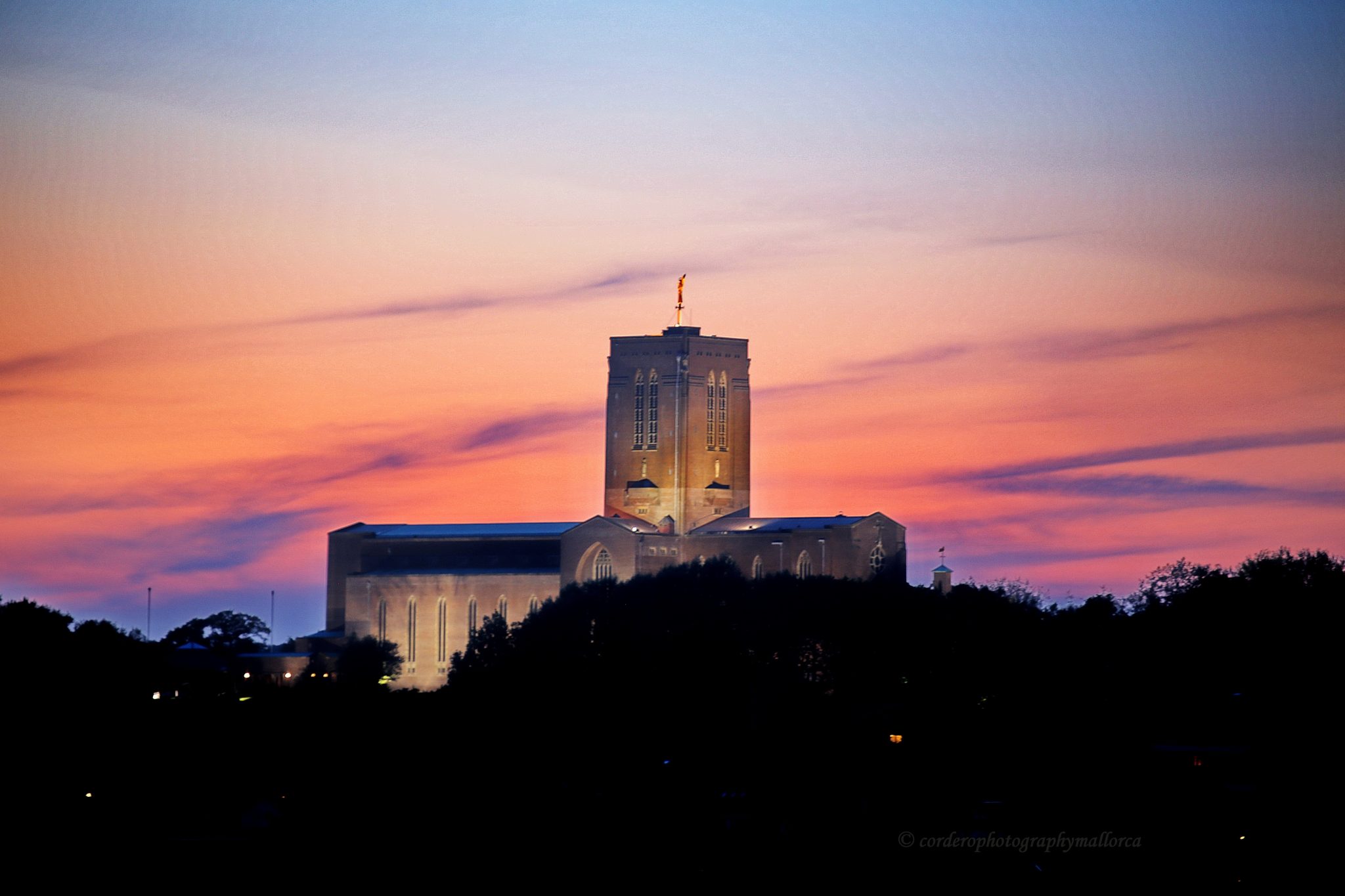
A glorious sunset over Guildford Cathedral. Air pollution in towns has been drastically reduced during the lockdown. Photo taken by Ruth Cordero.
These and many other aspects of “lockdown life” have opened the door to a future that seemed impossible just six months ago, and this optimism is mirrored on many other fronts.
We have demonstrated that we are capable of making sweeping changes in our lives, both individually and as nations, to tackle a common cause – such as furloughing millions of workers in halted industries. If we can weather these major disruptions to ‘normality’ to battle a virus, surely we can do likewise with other existential global challenges such as climate change, inequality or ecosystem collapse?
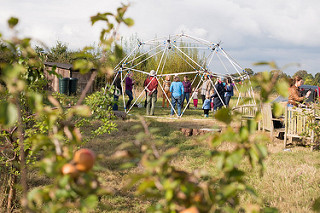
The 19 acre Rosamund Community Garden on Pewley Down grows organic vegetables for local people.
Individuals, cities and entire countries across the world are applying the lessons learnt from this pandemic not only to counter these issues, but also to recover from the impacts of the virus themselves. Examples exist at all scales, from community veg patches in Gomshall hoping to foster neighbourliness and provide fresh produce for local people, to plans for a four-day working week in New Zealand, aimed at creating jobs and healthier work-life balance.
Amsterdam is implementing a “doughnut model” economic system, which puts the environment, economic and social justice, and sustainability ahead of endless growth for growth’s sake. Several countries including Scotland have banned tax-dodging companies from receiving public bailouts. The French government is promoting environmentally-friendly travel by preventing Air France from undercutting rail companies domestically.
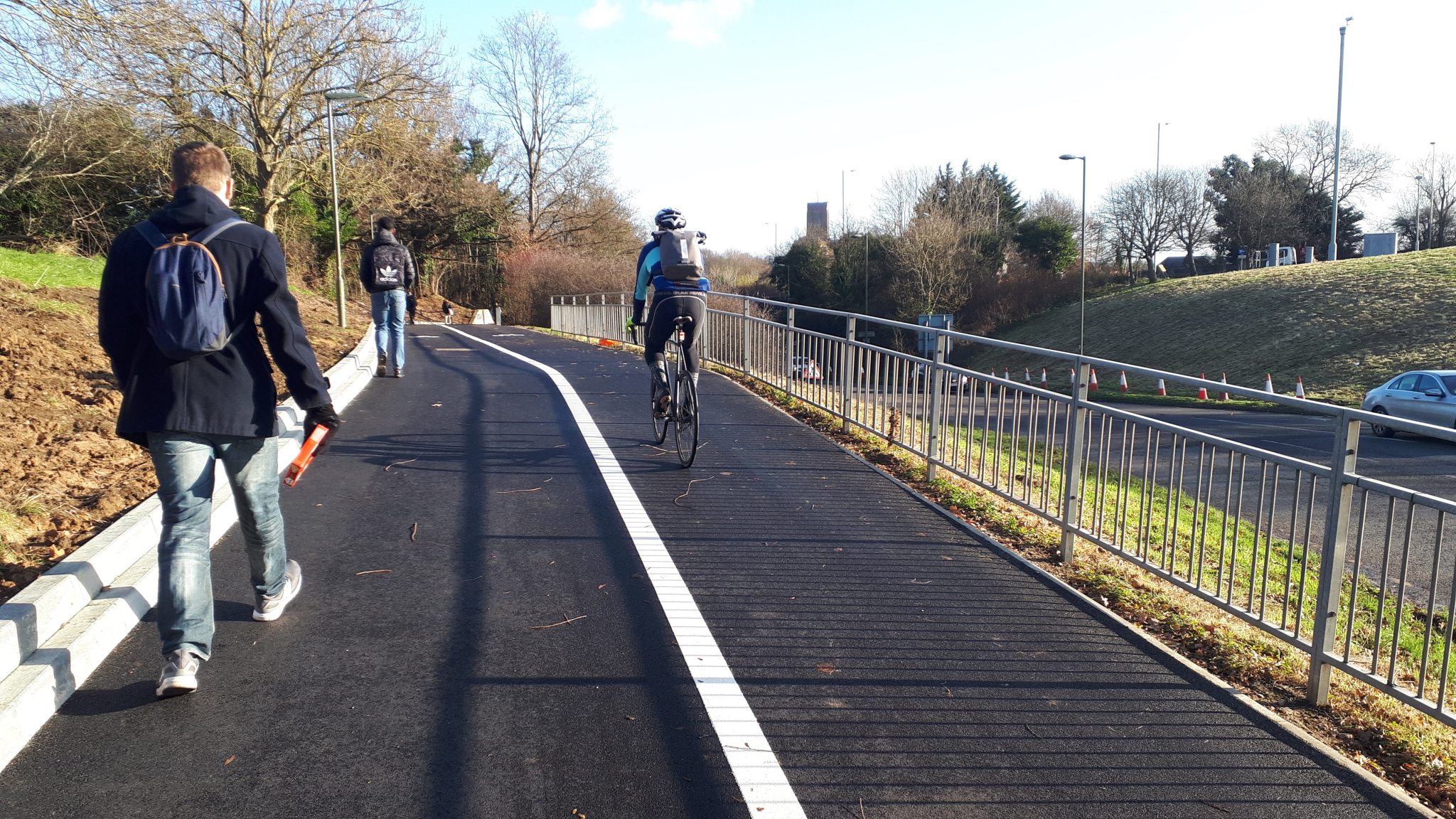
The shared pedestrian and cycle lane between the hospital and the university is a very well used part of the Guildford Sustainability Movement Corridor.
Not only will policies like these, considered part of “green economic stimulus packages”, help tackle issues such as climate change or poverty, but research has found they can also enable countries to recover from the economic hit of the pandemic far more effectively than traditional spending.
So what ideas could Guildford implement to support these ambitions?
A focus on sustainable energy generation and energy efficiency, such as properly insulating and installing solar panels on all publicly-owned buildings, would not only reduce our carbon emissions enormously but also support local green jobs and generate revenue for the council.
Energy efficiency measures could also see households saving an average of £270 a year on their utilities bills. Surrey County Council has already moved towards these policies in its Climate Plan, and now is the perfect time to capitalise on their many benefits.
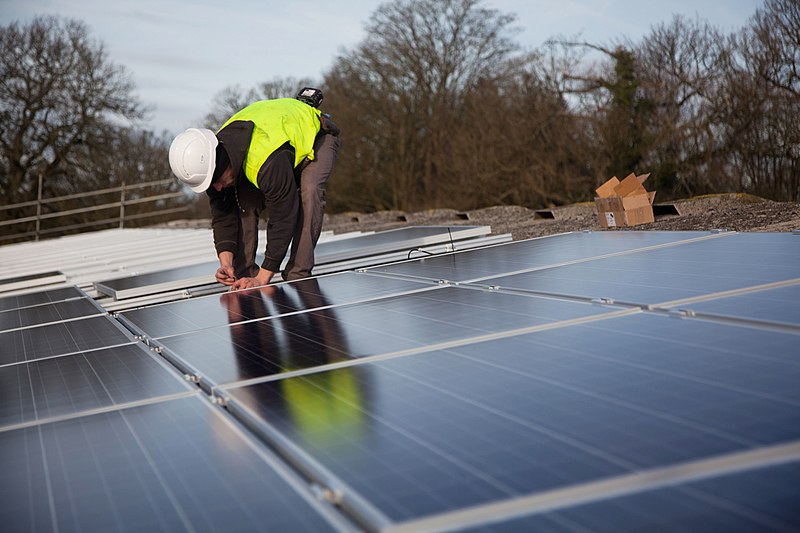
Renewable energy production such as solar panels could contribute to the regeneration of the economy in Guildford.
Small independent businesses have been hit hardest by this pandemic, at a time when the High Street is already at risk. Promoting local businesses can bring life back to our town, while also rebuilding a sense of community, bolstering the local economy and giving shoppers more sustainable choices. Supporting farmers, in particular, can enable better access to high-quality, locally-grown food.
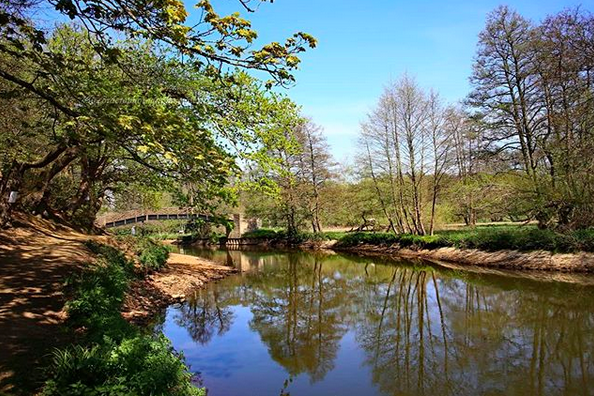
The beautiful countryside around Guildford, including the River Wey, can help with exercise and mental health. Photo by Ruth Cordero.
Regenerating ecosystems and ensuring that all residents have easy access to our beautiful countryside can not only improve physical and mental health, but also help soak up carbon emissions and encourage domestic tourism. As traffic returns to our streets, increasing biodiversity can also minimise the resurgence in air pollution and protect ecosystems which have flourished under lockdown.
Having boosted numbers of electric buses recently, Guildford is now also installing new temporary cycle lanes and widened pavements to encourage sustainable travel. Making these changes permanent, and continuing investment in public transport and non-car travel will reduce our much-maligned traffic, improving air quality and making our streets safer. The possibility of car-free days in the town centre is also being discussed, with appropriate exceptions for those who have no alternatives.
The coronavirus pandemic has fractured society and the economy, forcing us to make sacrifices to keep ourselves, loved ones and our community safe. We now have the opportunity to build a better, fairer, greener society in Guildford. People want change on a national level, and are also willing to make changes locally and individually.
We must take this chance to tackle key issues like the climate crisis and poverty as we recover from this public health crisis.













Jules Cranwell
May 30, 2020 at 7:00 am
All very worthy ideas. Unfortunately, they are at odds with the GBC Local Plan, which allows vast estates to built on the countryside and greenbelt. With the loss of countryside, and hugely increased car usage, it will be highly damaging to the environment.
Now is the time for the GBC leadership to learn the lessons from the current crisis, and revise the Local Plan accordingly.